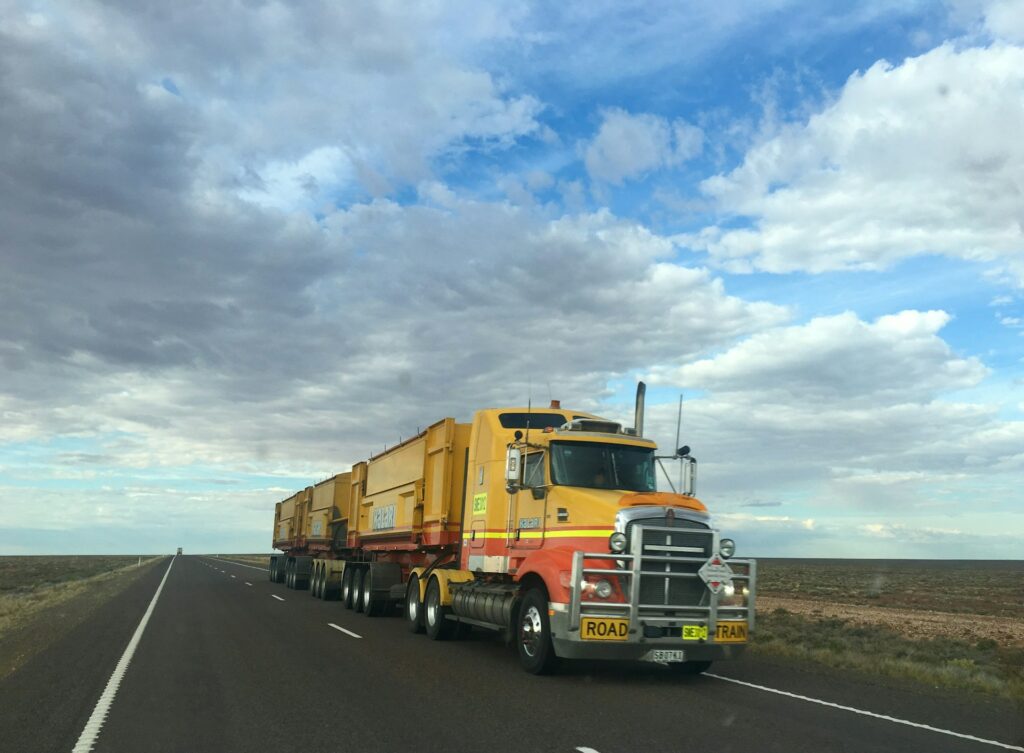Truck Accident? Who’s to Blame? Sorting Out Fault in Complex Cases

In the complex world of legal proceedings, few cases are as intricate and potentially overwhelming as those involving truck accidents. These collisions often cause extensive damage, severe injuries, and fatalities, leading to intense scrutiny and legal proceedings. Understanding fault in truck accidents necessitates a grasp of traffic laws, trucking regulations, and incident particulars.
In this article, we provide essential guidance for individuals and legal professionals navigating faults in complex truck accident lawsuits.
Understanding Legal Principles
In the United States, truck accident lawsuits typically rely on the principle of negligence. Negligence holds individuals accountable for their actions or inactions that breach the standard of care, directly causing accidents and injuries. It establishes liability based on failure to meet a reasonable standard of care leading to harm. In truck accidents, negligence manifests through speeding, distracted driving, inadequate vehicle maintenance, or breaches of federal trucking regulations.
According to LawInfo, driver error is considered the primary cause in the majority of big accident cases. It comprises 87% of severe injuries and fatal crashes. This underscores the significant impact of driver mistakes on the severity of truck accidents.
Also, understanding the legal doctrine of vicarious liability is essential. This legal principle imposes liability on employers for the conduct of their employees during work-related activities. In truck accident cases, it implies that trucking companies can be held accountable for their drivers’ negligent behavior.
Gathering Evidence
Effective evidence gathering is crucial for establishing fault in truck accident lawsuits. Collecting comprehensive evidence is vital, including police reports, eyewitness accounts, photographs of the scene, and maintenance records of the involved truck. This thorough documentation strengthens the case and aids in determining fault accurately. Also, obtaining data from electronic logging devices (ELDs) and onboard cameras can provide valuable insights into the events leading up to the collision.
One crucial piece of evidence to consider is the truck’s black box, formally known as the electronic control module (ECM). This device records data such as vehicle speed, brake application, and engine performance, offering invaluable insights into the circumstances surrounding the accident.
According to AAA, 95% of new vehicles are equipped with an onboard Event Data Recorder (EDR). EDRs provide crucial information for accident reconstruction and determining the factors contributing to collisions. It highlights their significance in evidence collection for accident investigations.
Assessing Liability
Determining liability is a pivotal aspect of navigating truck accident lawsuits. Liability can extend to various parties beyond the truck driver, including trucking companies and vehicle manufacturers. Maintenance providers and governmental entities may also share liability.
Assessing liability hinges on compliance with federal regulations, with the FMCSA imposing stringent guidelines on trucking operations. Violations, encompassing driver qualifications and vehicle maintenance, heavily influence liability. Scrutinizing actions pre-accident, such as driver conduct and adherence to safety protocols, is crucial. Evaluating the overall safety culture within the trucking company also plays a pivotal role in determining liability.
IIHS and HLDI reported that in 2021, crashes involving large trucks accounted for 12% of all deaths of occupants in passenger vehicles. Also, in multiple-vehicle crashes, these accidents comprised 22% of passenger vehicle occupant fatalities. The data related to the involvement of multiple vehicle crashes underscored the importance of accurately assessing liability in complex accident scenarios.
Working with Legal Professionals
Traversing the intricate terrain of truck accident litigation frequently demands the insight and support of experienced legal advocates. These professionals often leverage a network of specialists, including accident reconstruction experts and medical practitioners, to strengthen your case. A proficient truck accident attorney can serve as a crucial ally in championing your interests and obtaining the rightful compensation owed to you.
5 On Your Side reported an accident in March 2024. In the incident, a 26-year-old woman tragically lost her life in a two-car crash in St. Louis. The crash occurred when a 23-year-old man, allegedly speeding, collided with a Freightliner truck while attempting to switch lanes. EMS transported the driver and another passenger to the hospital, both in stable condition, but the woman in the passenger seat died on-site.
If you are involved in such an accident in St. Louis, consulting a local truck accident lawyer is crucial. These legal experts focus on truck accident cases, possessing extensive knowledge of the complex laws governing the trucking industry. A St. Louis truck accident lawyer offers essential expertise in liability assessment, evidence gathering, and negotiation tactics for meticulous case presentation.
TorHoerman Law provides six crucial questions to consider when evaluating a law firm or attorney for your truck accident case. These inquiries include assessing the firm’s experience, truck accident resources, and history of filing claims against truck drivers or companies. Also, understanding the fee structure, payment terms, and commitment to your case are essential factors to consider when making an informed decision.
Negotiation and Settlement
A fair settlement negotiation in truck accident cases can alleviate the burdens of prolonged court proceedings, saving time and costs. However, reaching a favorable settlement requires strategic negotiation skills and a thorough understanding of the case’s strengths and weaknesses.

During negotiations, parties assess fault, damages, and compensation to address the victim’s losses comprehensively. Calculations include medical expenses, lost wages, pain, suffering, and future rehabilitation costs. It’s vital to negotiate with clarity and a willingness to compromise, prioritizing swift resolution and closure. While aiming for maximum compensation is ideal, being receptive to reasonable offers expedites the process and benefits all involved parties.
Trial Preparation
Thorough trial preparation remains crucial in truck accident lawsuits despite many cases being settled through negotiation. This process entails meticulous evidence gathering, witness identification, and strategic legal planning. Attorneys conduct thorough research, analyze depositions, and consult with experts to bolster their arguments.
Anticipating challenges and refining courtroom strategies are integral components of trial preparation to ensure a robust case presentation.
Frequently Asked Questions
How is fault determined in truck accident lawsuits?
Fault in truck accident lawsuits is determined by analyzing various factors like negligence, compliance with regulations, and the actions of all parties involved. Evidence from the accident scene, witness testimonies, and expert opinions help ascertain liability for the collision.
What evidence is essential for determining fault in truck accidents?
Police reports, eyewitness accounts, and accident scene photos are vital evidence. Maintenance records and onboard data are also crucial. These elements provide crucial insights into the circumstances surrounding the collision.
How do legal professionals assist with fault determination in truck accident lawsuits?
Legal professionals aid in fault determination by analyzing evidence, scrutinizing regulations, and assessing liability factors.

They leverage their expertise to navigate complexities and advocate for clients’ rights in pursuit of fair outcomes.
Navigating Truck Accident Lawsuits with Confidence
Deciphering fault in truck accident lawsuits demands a nuanced understanding of legal principles, evidence gathering, liability assessment, negotiation tactics, and trial preparation. Mastering these strategies is crucial for achieving just outcomes, whether as a victim seeking compensation or a legal representative.
Through staying informed, collecting evidence diligently, and collaborating with seasoned professionals, individuals can navigate legal complexities for fair compensation and accountability.

 Is 48Ft3Ajx Harmful? What You Need to Know
Is 48Ft3Ajx Harmful? What You Need to Know  The Ultimate Guide to Off-Piste Skiing in the Alps
The Ultimate Guide to Off-Piste Skiing in the Alps  Htsicret: Understanding Its Significance
Htsicret: Understanding Its Significance  Is Vallpo523.zvc5.0o Good For Skin?
Is Vallpo523.zvc5.0o Good For Skin?  The Importance of Effective Infotainment Solutions for Safety and Navigation
The Importance of Effective Infotainment Solutions for Safety and Navigation  Progression Guide for Successful Clash Royale Boosting for Beginners Who Want to Develop Their Account Faster
Progression Guide for Successful Clash Royale Boosting for Beginners Who Want to Develop Their Account Faster